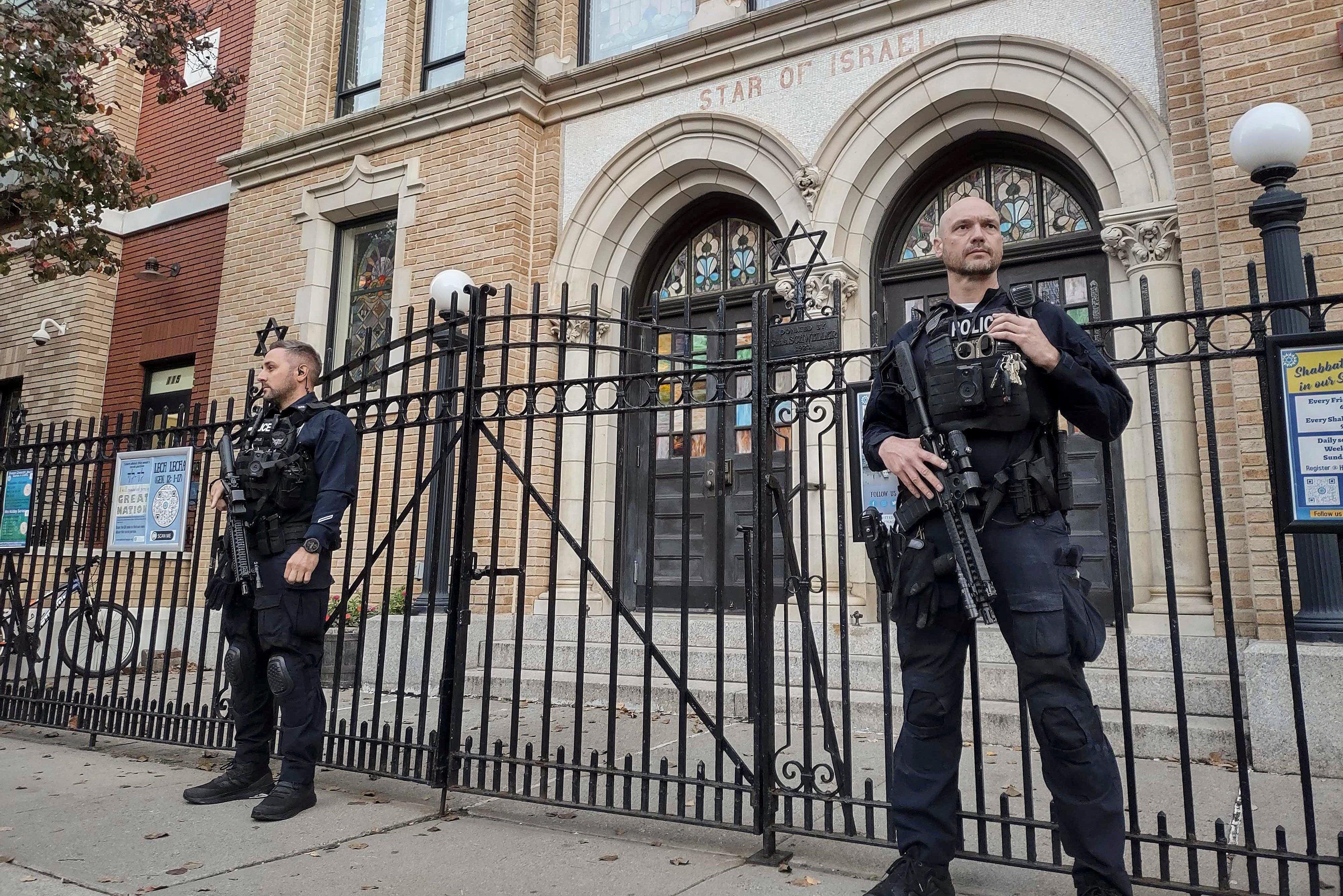A new Homeland Security guide aims to help houses of worship protect themselves
A new guide from the Department of Homeland Security aims to help churches, synagogues, mosques and other houses of worship protect themselves during heightened tensions in faith-based communities across the country

Your support helps us to tell the story
From reproductive rights to climate change to Big Tech, The Independent is on the ground when the story is developing. Whether it's investigating the financials of Elon Musk's pro-Trump PAC or producing our latest documentary, 'The A Word', which shines a light on the American women fighting for reproductive rights, we know how important it is to parse out the facts from the messaging.
At such a critical moment in US history, we need reporters on the ground. Your donation allows us to keep sending journalists to speak to both sides of the story.
The Independent is trusted by Americans across the entire political spectrum. And unlike many other quality news outlets, we choose not to lock Americans out of our reporting and analysis with paywalls. We believe quality journalism should be available to everyone, paid for by those who can afford it.
Your support makes all the difference.A new guide from the Department of Homeland Security released Wednesday aims to help churches, synagogues, mosques and other houses of worship protect themselves at a time of heightened tensions in faith-based communities across the country.
The Cybersecurity and Infrastructure Security Agency, an arm of Homeland Security, works with faith groups across the country to help them prepare for and prevent targeted violence against their facilities and their members. David Mussington, who's in charge of infrastructure security at CISA, says the goal of the 16-page document is to give useable information in a format that's easy to understand.
“It’s designed to be clear, to be less jargon-filled and to provide guidance and assistance in getting assistance from us,” Mussington said.
The guidance, dubbed “Physical Security Performance Goals for Faith-Based Communities,” outlines how faith groups can better protect themselves: keeping landscaping like hedges trimmed to prevent hiding places for attackers, for example, or only giving out necessary information during livestreams of services.
It also talks about having a plan in place for when something happens, such as having a predetermined spot where people can go and having a dedicated location for the faith community to memorialize people affected by what happened. There's also information about federal government grants that houses of worship can apply for to pay for security improvements as well as other resources the department has developed to help communities.
Mussington said the guidelines have been in the works for months in response to concerns his agency has heard from various faiths about how to protect themselves.
“In this continued heightened threat environment, the Department of Homeland Security is committed to protecting every American’s right to live, express, and worship their faith freely and in safety,” Homeland Security Secretary Alejandro Mayorkas said in a statement. “The physical security performance goals we are releasing today provide churches, synagogues, mosques, and other faith-based institutions with cost-effective, accessible, and readily implementable strategies to enhance their security and reduce the risk to their communities.”
The guidance will be distributed via CISA offices around the country and the agency's network of roughly 125 protective security advisers across the country who work with various communities to provide security advice.
The guidance comes at a time of deep unease in many communities of faith across America. Jewish communities across the country have been worried about rising antisemitism even before the Oct. 7 Hamas attack on Israel, taking efforts to defend their synagogues and communities. Since the Hamas attack, Mayorkas said, his agency has responded to an increase in threats against Jewish, Muslim, and Arab American communities in the U.S.
Subscribe to Independent Premium to bookmark this article
Want to bookmark your favourite articles and stories to read or reference later? Start your Independent Premium subscription today.